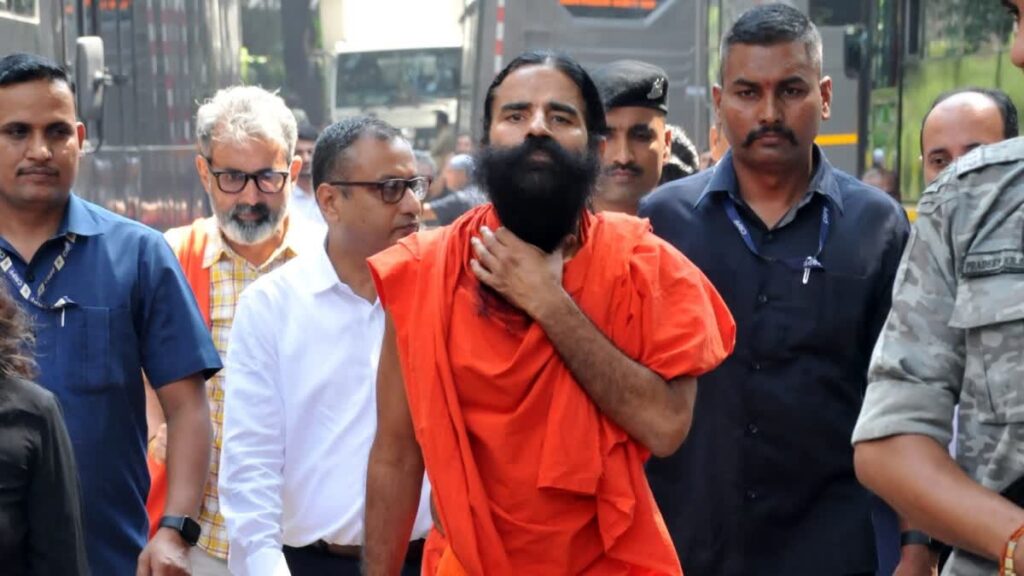Supreme Court Reprimands Uttarakhand State Licensing Authority for Delayed Regulatory Action Against Patanjali Ayurved

Supreme Court Reprimands Uttarakhand State Licensing Authority for Delayed Regulatory Action Against Patanjali Ayurved
The judicial discontent with bureaucratic delays was because of a pattern of prolonged inactivity that only ceased following their judicial intervention.
2 May 2024
By Ishika Kumar
In a recent session on 30th April, the Supreme Court of India expressed strong dissatisfaction with the Uttarakhand State Licensing Authority’s (SLA) belated crackdown on Patanjali Ayurved and its subsidiary, Divya Pharmacy.
The judicial discontent with bureaucratic delays was because of a pattern of prolonged inactivity that only ceased following their judicial intervention. The apex court’s sharp critique is directed towards the ongoing concerns regarding regulatory vigilance in the Ayurvedic pharmaceutical sector.
Delayed Reactions and Legal Reprimands
A Bench comprising Justices Hima Kohli and Ahsanuddin Amanullah reprimanded the SLA for its protracted period of inertia for years, which recently ended abruptly with the suspension of licences for 14 Patanjali products, noted during the proceedings on 30th April, including popular items such as ‘Swasari Gold’ and ‘Mukta Vati Extra Power.’.
This action came only after the Supreme Court demanded explanations for the SLA’s non-compliance with prior notifications and warnings from the AYUSH Ministry (AYUSH-Ayurveda, Yoga and Naturopathy, Unani, Siddha and Homeopathy) regarding complaints about Patanjali’s products over the years citing consumer complaints. Justice Kohli pointedly remarked on the sudden urgency in the SLA’s actions, suggesting that while the authority can act “like lightning,” by stating, “if you want, you can move like lightning”, it just typically chooses not to do so. The justices questioned why the SLA remained in a “limbo” for nearly six years despite being aware of the infractions.
The Apex Court’s Direct Involvement
The court’s involvement during the case hearings escalated when revelations followed regarding the SLA ignoring the repeated communications from the AYUSH Ministry. The Supreme Court’s order on 10th April was a critical juncture in prompting the SLA to acknowledge its oversight and responsibilities under the observations, which came amid revelations of non-compliance by the herbal medicine giant with the Drugs and Magic Remedies (Objectionable Advertisements) Act of 1954. It is appalling that it took a Supreme Court intervention on 10th April for the SLA to act decisively.
During the hearing, Dr Mithilesh Kumar, the Joint Director of SLA, issued an unconditional apology and presented an affidavit claiming that new directives had been issued to all Ayurvedic and Unani medicine manufacturers, ensuring compliance with relevant advertising regulations under various acts including the Consumer Protection Act of 2019, and the Cable Television Networks Act of 1995.
Notice of Contempt and Judicial Vexation
Adding to Patanjali’s list of woes, the Supreme Court also issued a contempt notice to the company and its managing director, Acharya Balkrishna, questioning the efficiency and compliance of the regulatory measures ostensibly in place before the court’s intervention. The Bench was particularly critical of the SLA’s self-assessment as the SLA’s claims of vigilance came under severe scrutiny when Justice Amanullah remarked about the SLA using the court’s “shoulders to shoot”.
It metaphorically summed up the judiciary’s point of view of the authority’s reactive rather than proactive approach to its inherent and supposed regulatory duties. The company’s legal responses and the adjustments in their advertising practices suggested an acknowledgement of the issues raised. Notably, the company published a revised public apology, which the court noted as an improvement over the previous effort.
The IMA Controversy and Implications
The hearing also touched on broader implications of regulatory failures, including a controversial statement made by the Indian Medical Association (IMA) President RV Asokan, which prompted the justices to rebuke the IMA to “put its house in order.” This reflects the court’s larger dissatisfaction with the maintenance of professional and regulatory standards in health-related advertising and public communication.
New Affidavits Due to Continuous Oversight
The Supreme Court has provided the SLA with a 10-day window to submit new affidavits detailing their corrective actions and policies implemented post-intervention. The case is set to resume on 14th May, promising continued judicial supervision of the practices of both the SLA and Patanjali Ayurved.
This case highlights the judicial stance on the negligence of regulatory bodies in enforcing compliance with health and advertising standards. The Supreme Court’s intervention also highlights the need for regulatory authorities to be more vigilant and autonomous in their operations, avoiding dependencies on higher powers to prompt action against non-compliant entities. But it also exemplifies a critical feature, which is the challenges in monitoring and enforcing this compliance in the rapidly growing Ayurvedic pharmaceutical industry.
As the matter is set for further hearings on 14th May, the Supreme Court’s final judgments could redefine the landscape of corporate accountability. While the outcome may well set a precedent encouraging quicker and more decisive actions in the regulatory framework surrounding health and wellness products, the court awaits new affidavits, and stakeholders from across the sector.
They are reminded of the rigorous standards expected by both the public and the pinnacle of the Indian judiciary. The unfolding developments will be closely watched, with potential implications for regulatory practices across India’s traditional medicine sectors.









